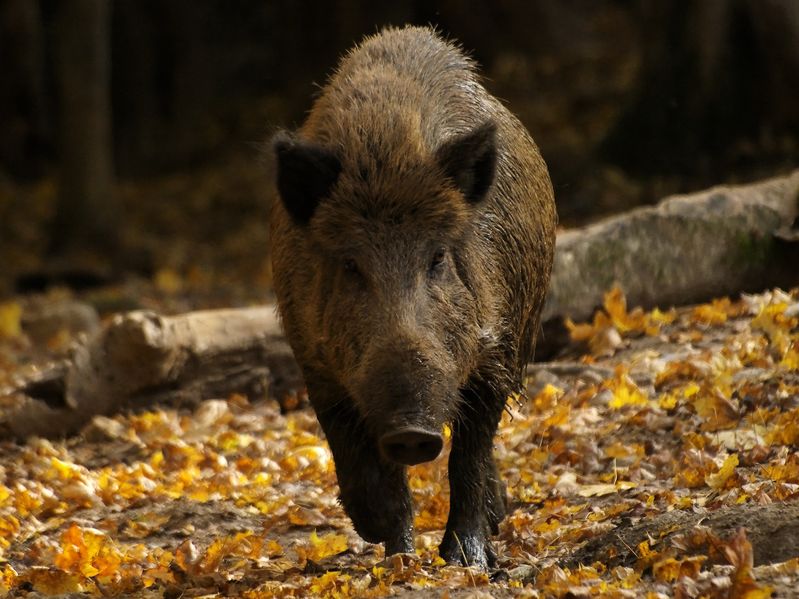
German authorities have discovered what could be a new cluster of African swine fever in wild boar as cases of the disease now total 65.
Drone footage released online shows around 17 dead wild boars and approximately 30 still alive on Oder island in Kustrin-Kietz, a small village in the state of Brandenburg.
According to German media reports, some wild boars on the island appear to be infected with African swine fever.
The Friedrich Loeffler Institute (FLI) - that country's leading animal disease centre - says the aim is to isolate the group to prevent the further spread of the virus.
However, while the group will continue to be observed by drone, the intention is not to disturb them.
"Intervening would be too dangerous because sick animals are very aggressive," the district's spokesman Thomas Behrendt, told news website Markische Oderzeitung (MOZ).
Meanwhile, ten cases in wild boars were confirmed in Brandenburg on Monday (12 October).
There have now been 51 in the Oder-Spree district, 12 in the Spree-Neisse and two in the second, separate area, Märkisch-Oderland, about 60km away close to the Polish border.
While the number of infections is growing in the wild boar population in Brandenberg, the virus has not affected domestic pig populations in Germany.
The country's first ever case of ASF, announced on 10 September, was discovered just six kilometres from the Polish border.
Since then, China, along with Japan, South Korea, Singapore and others, have banned pork imports from the country.
China’s Ministry of Agriculture explained that the move was intended to 'protect the animal husbandry industry and prevent the spread of the disease'.
